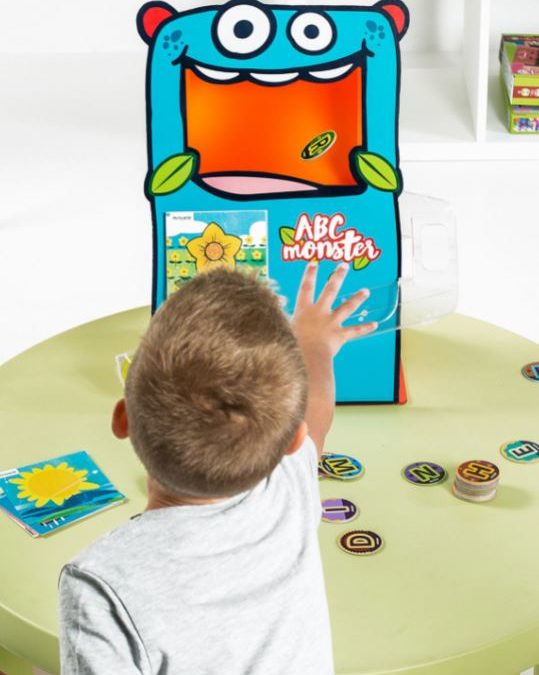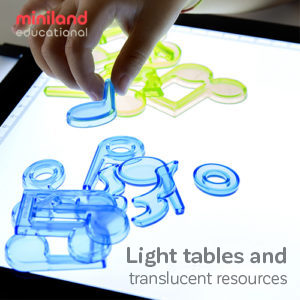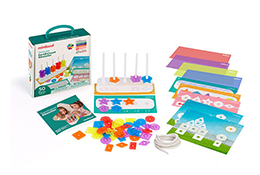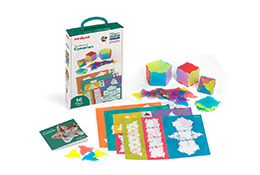T
These types of games provide opportunities for children to develop necessary social and cognitive skills that ensure they’re welcomed into 21st-century society as mindful contributors.
As specialist toymakers, we strive to develop educational toys for children that express our belief in the importance of a sound education. In this blog we share 5 ways the Miniland ABC Monster promotes cooperative play in your classroom:
Point 1: There is no single identifiable winner (& therefore no loser)
Cooperative play is the stage of development in which a child’s play style finally becomes organized around group interaction. These tendencies arise naturally — up to a point — through biological development, but it’s up to us as guardians to provide opportunities to shape this raw tendency in healthy ways.
-1.jpg?width=502&name=31977_4%20(1)-1.jpg)
ABC Monster is a game that requires children to work together to “feed the monster” letters that create words. As a teacher, you may choose to reward groups who engage successfully and mindfully with this exercise, but there is no winner or loser. The focus is instead in the group succeeding to complete the task, and this can only be achieved by learning to work together. This ensures that socialization is not focussed on competitiveness and division.
Point 2: The focus is on language development
Language development is a key benefit of cooperative play, and ABC Monster is primarily a literacy development tool. Teaching children to read and write can be a daunting task because so much of their success later in life depends on it. However, with ABC Monster, the repetition of learning to make meaning from letters becomes a fun exercise. In this way, you provide your class with ample opportunity to practice word building and to learn from each other. In order to work together, they need to speak to each other. Because this game is focussed on group engagement, it will be natural that faster learners will engage with those who find language acquisition more difficult (or who are second language speakers). This gives your class both a chance to practice what they know, and learn something new.
Point 3: It develops organized thinking
A definite step in any child’s cognitive development is when they grow their ability to think in organized ways. As a cooperative game, ABC Monster provides fertile ground for this skill to develop. To achieve the goal of forming a word from letters takes planning — both as an individual, but also as a collective. Your class will be challenged to think strategically, not only in terms of the problem-solving required to form words, but also to figure out the social logistics of taking turns and sharing.
Point 4: They learn the positive side of obeying some (gentle) rules
ABC Monster comes with game cards that switch up the rules and mean that your children never get bored. At its core, the aim is always to form words from letters by feeding the (friendly!) monster, but the different constraints introduced by the game cards allow for multiple variations around this theme.

This ensures you get value for money from your Miniland purchase because this game grows in difficulty as your class grows in ability. It also ensures they won’t get bored with the repetition that is necessary to learn any new language.
Finally, this gentle introduction to rules is a positive way to sensitize them to the panoply of social rules and pressures they’re bound to face as adults. While they can be constraining, ABC Monster introduces rules in a positive way — demonstrating how they can heighten our ability to work together to achieve collective, positive aims.
Point 5: It teaches about sharing
Delayed gratification teaches young children patience in a gentle way. Cooperative games, like ABC Monster, teaches them to share and wait their turn (i.e. to feed the monster). This behavior is positively reinforced by the rewarding outcome of achieving their goal more quickly and obtaining any reward you may gift them for successfully completing the challenge. For example, four brains are always better than one: in order to know which word to build, children need to decode an image on a game card. Doing so as a team means they find out which word to build far more quickly than when working alone, but it requires the patience of letting each other speak. In this way, this cooperative game does its bit to help you develop mindful kids in your classroom.
With cooperative games as a staple of your classroom, you can rest assured you’ll be doing your best to support your children; helping them grow into capable citizens of a sustainable future society built on collaboration and mindful negotiation.
At Miniland, we’ve made it our mission to help you get the best out of educational toys in your classroom. Take a closer look at our catalog to find out more, and explore our range of specialty toys.




